In vitro propagation
What we do: the latest on propagation
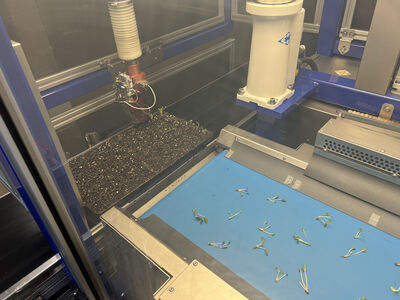
Perhaps you also wonder from time to time what exactly the people at Lubera Edibles do every day. Do they do anything with in vitro propagation? But do they also sow seeds, take cuttings and wood cuttings? The short answer is yes, but...
In vitro propagation is still the main tool for propagating high-quality young plants. Why and what exactly we do will be explained below.
Read moreOpen Sky® Tomatoes – The Resistant Tomato Young Plants for Outdoors
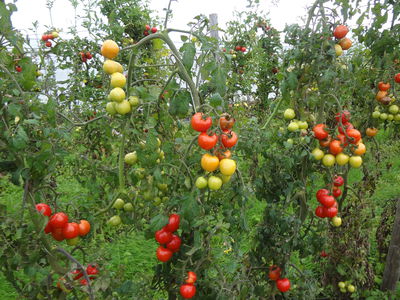
In recent years, the Lubera® breeding programmes have also been steadily expanded in the direction of vegetables. The first breeding programme is now bearing fruit, literally. We are pleased to present our Open Sky® outdoor tomatoes. Our Open Sky® tomatoes are designed to simplify cultivation in the home garden. By strictly selecting the healthiest plants, we have developed varieties that can be grown in the garden without further weather protection in Central Europe and they are also...
Read moreThe production of oca young plants for retailers
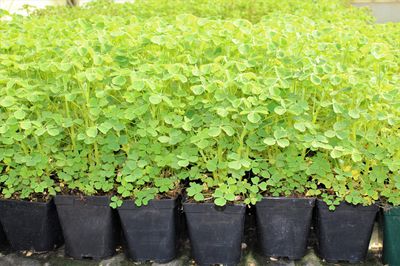
In previous articles we have already described our new tuberous vegetable oca (Oxalis tuberosa) in more detail and also presented our assortment of oca young plants as well as described how our assortment will develop in the future. In this article we would now like to introduce you to our oca young plant quality and show you how you can produce a saleable/tradable plant from this oca young plant.
Read moreThe production of kiwi plants outdoors

Since kiwi plants are mainly cultivated in protected areas, the title sounds a bit strange at first. However, a coincidence that occurred while producing kiwi plants at our partner company Lubera at the Bad Zwischenahn site has shown that this idea is not as far-fetched as it might seem at first glance.
Read moreLubera breeds potatoes – the most important questions and answers
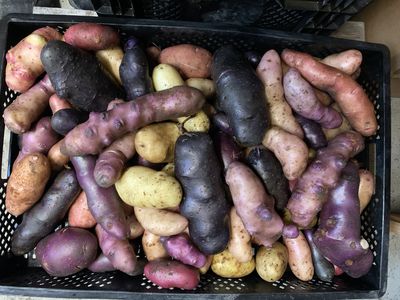
With the expansion of the range of young plants from Lubera Edibles to include vegetables, Lubera also started breeding potatoes a few years ago. How does a simple tree nursery now come up with the idea of breeding potatoes? You are right to ask this question and we will answer the most important questions about our potato breeding project in the following FAQ.
Read moreQuality assurance when propagating young plants – assuring that what has gone in also comes out...

This is true to the motto: "What goes in must come out!" We check the plant authenticity and fruit quality of all larger batches of young plants on a random basis. For this purpose, six randomly chosen young plants from selected young plant batches are potted, cultivated and brought to fruiting. This important “final control” is only one part of our quality assurance.
Read moreRoot power – a look into the future of rhubarb
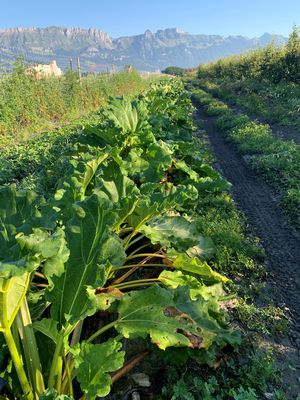
Looking into the future can be little more than looking into a crystal ball. What helps is to look back: rhubarb has a great past and history. There is a lot of future to be expected...not all rhubarb is the same – and a look at our candidate varieties from the Lubera® breeding programme shows what diversity even simple rhubarb is capable of.
Read moreRaspberries and blackberries – how an assortment is put together
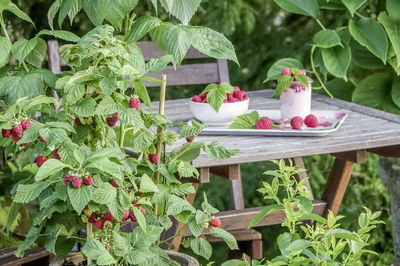
A few months ago, by analysing the strawberry sales figures of our sister company Lubera, we tried to give some indications of a standard distribution of strawberry types (white flowering, red flowering, June bearing and everbearing, etc.). We are testing the same again with raspberries and blackberries in order to give you an overview of the demand. The corresponding figures can then serve as a reference point for your own assortment planning, as they are based on real sales figures. Of course...
Read moreTomato and aubergine breeding at Lubera Edibles
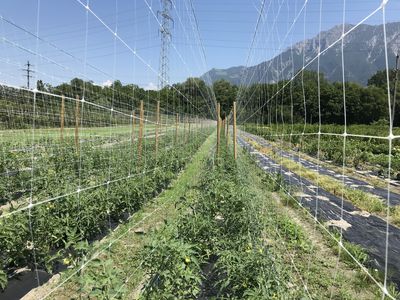
Tomatoes and aubergine young plants from Lubera Edibles®. We can already see the incredulous amazement in the eyes of many of our customers. And that's why we start early enough to explain what we do at Lubera Edibles vegetable-wise. Because one thing is certain: plant producers as well as young plant producers will have to position themselves more broadly and pragmatically in the future in order to resist the distortions of the market.
Read moreIn Vitro Establishment of Raspberries for Sterile Micropropagation
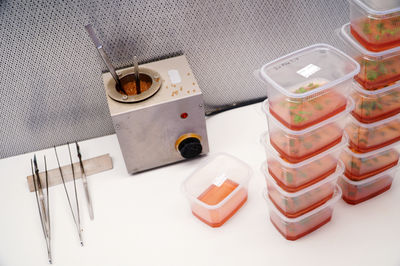
In order to produce a high number of genetically identical, pathogen-free raspberry plants in a short time, selected clones of desired varieties are micropropagated in our laboratory under sterile and controlled conditions.
Read more